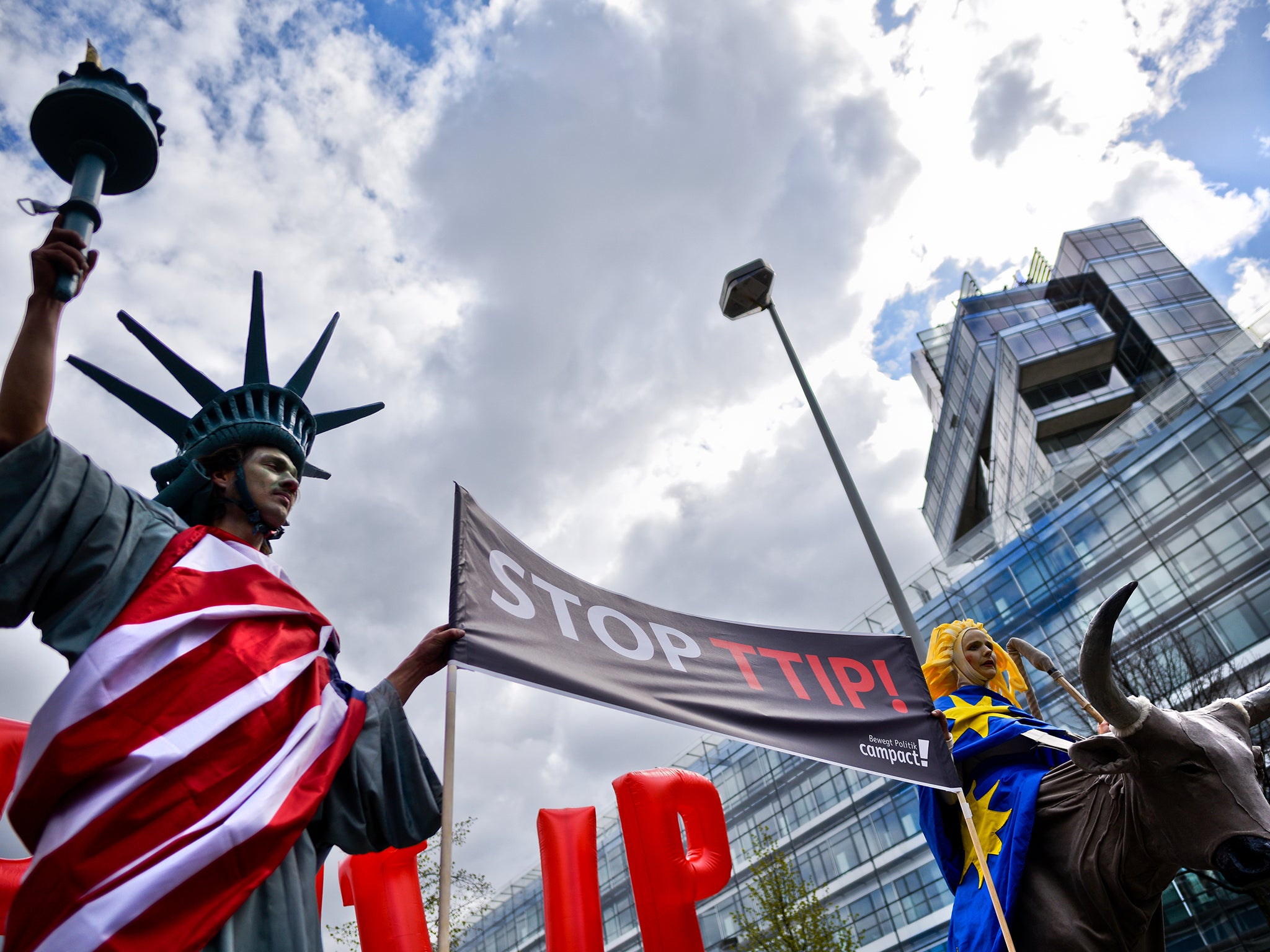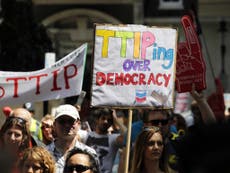We thought the best thing about Brexit would be avoiding TTIP - but the fight isn't over yet
The European elite’s contempt for the people of Europe has manifested itself with brutal clarity in their imposition of austerity on the populations of Greece, Cyprus, Romania, Latvia, Ireland and Portugal, as well as their drive to conclude the TTIP negotiations in the face of such widespread public opposition

The referendum decision to leave the EU opens a new chapter in the UK’s trade relations with the single European market. The Leave vote also introduces a new phase in the political life of the UK, as many of the powers that had previously been transferred to Brussels will now be brought back to Westminster – including, most importantly, the trade and investment policies that determine our relations with all other countries around the world.
Since the adoption of the Lisbon Agenda in 2000, the EU has committed itself to the most extreme programme of neoliberal capitalism in its trade agreements with other countries, relentlessly promoting the interests of big business at the expense of labour, society and the environment.
Nowhere has this agenda been more apparent than in the controversial Transatlantic Trade and Investment Partnership (TTIP) currently under negotiation between the EU and USA. The fact that unelected EU bureaucrats have pursued TTIP in open defiance of public opposition was a standard complaint in every one of the referendum debates that I took part in, and in many serious comment pieces written on both sides.
Yet the TTIP agenda of permanent austerity, deregulation and free market fundamentalism is not an aberration on the part of Brussels. It is now the EU’s standard programme for all peoples, within and outside Europe. Breaking with this model became a determining issue of the referendum for many on the left.
The Leave vote means that the British people have escaped being party to any future TTIP agreement as an EU member state. It is also highly doubtful that the TTIP project will be able to survive the UK’s withdrawal on top of all the other shocks that have hit the EU-US negotiations over the past few months. Brexit may well be the last straw that broke the TTIP camel’s back.
At the same time, it has always been clear that leaving the EU would bring us face-to-face with a UK political elite that has consistently championed the most extreme neoliberal positions on the European spectrum. As many have correctly pointed out, a new UK government could still attempt to sign us up to the principles of TTIP at a future date.
And this is the most important point for those of us who have devoted years of our lives to the cause of trade justice. We must now ensure that the British people’s decision to reject the EU and its neoliberal programme cannot be twisted into a mandate to pursue the same agenda unilaterally in the UK.
The Leave vote is a rejection of the political caste in this country, as most commentators already agree. The fact that voters in many traditional Labour strongholds came out for Brexit must be seen as a call for a new kind of politics based on decisions that benefit the many, not the few. A mere changing of the guard in Downing Street will never be enough to satisfy that demand.
EU leaders must themselves take stock of why the British electorate defied expectations and swung behind a Brexit vote. The European elite’s contempt for the people of Europe has manifested itself with brutal clarity in their imposition of austerity on the populations of Greece, Cyprus, Romania, Latvia, Ireland and Portugal, as well as their drive to conclude the TTIP negotiations in the face of such widespread public opposition.
Rumours coming out of Brussels suggest that EU trade commissioner Cecilia Malmström intends to deny national parliaments their promised vote on the EU-Canada trade deal, CETA. This is just the latest in a series of anti-democratic decisions that EU leaders need to reconsider urgently if they do not wish to be responsible for the further disintegration of the EU.
The fight is on to secure justice, rights and democracy inside and outside the EU, to reject the appalling scapegoating of migrants that we have seen during the Brexit debate and to stand up for social justice for all peoples. Now is the time to put aside the divisions caused by the referendum and unite behind this common vision of a better world.
John Hilary is Executive Director of War on Want



Join our commenting forum
Join thought-provoking conversations, follow other Independent readers and see their replies